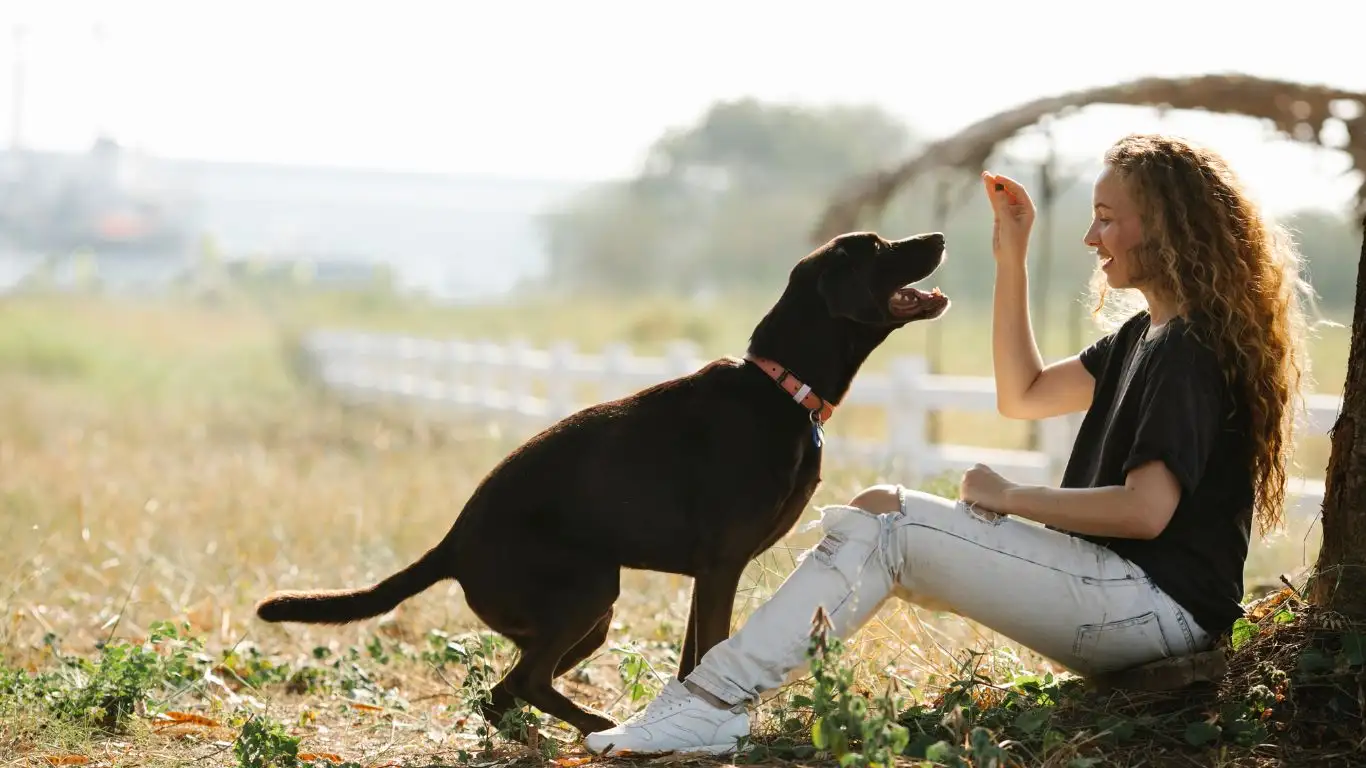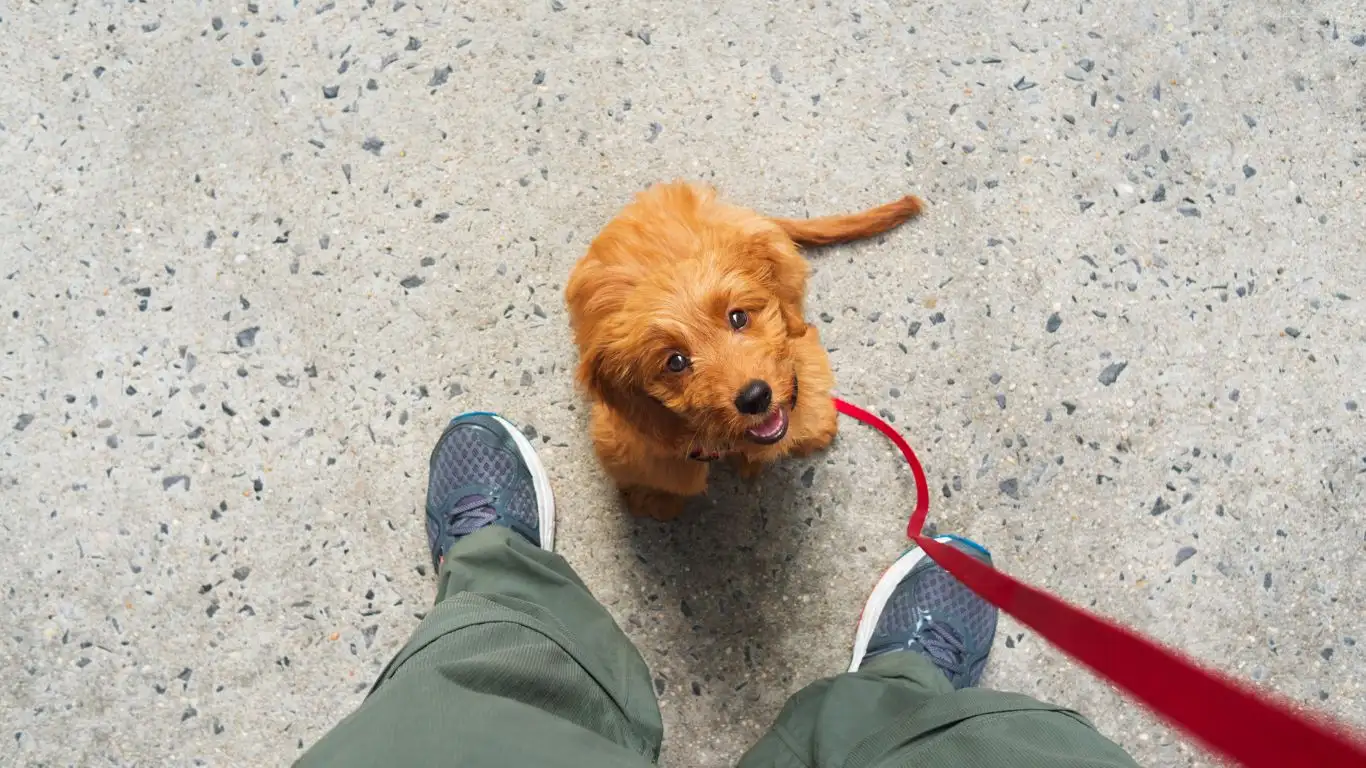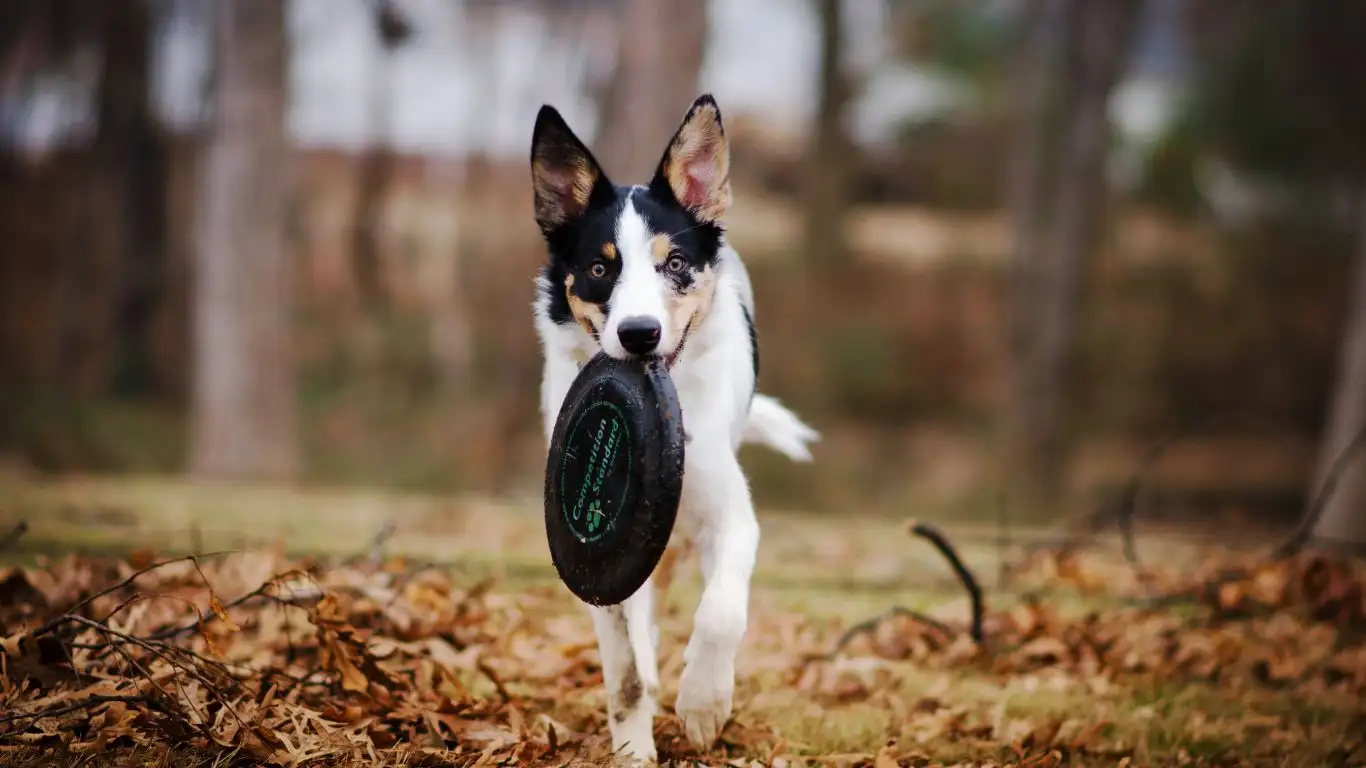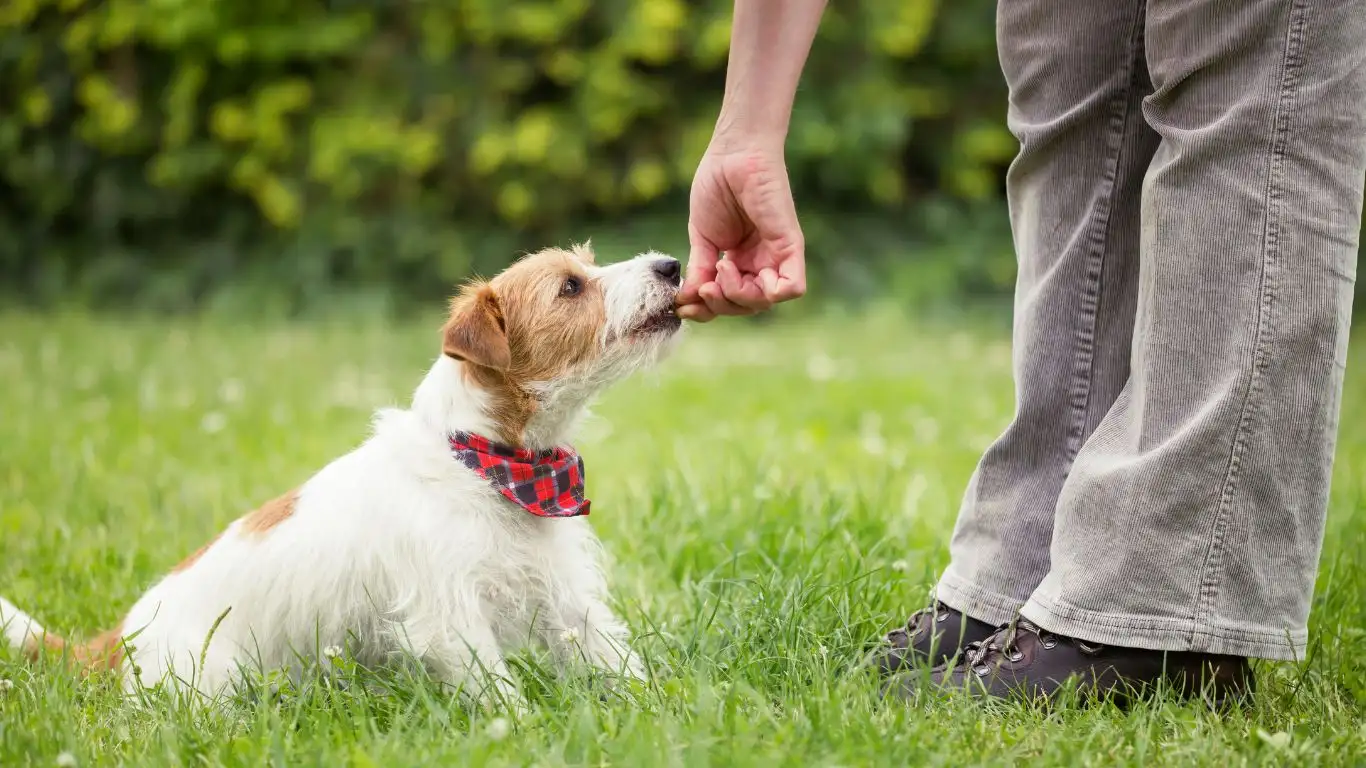Improve Dog Digestion Naturally with These Vet-Approved Tips
As a Canine-Assisted Therapy Trainer, I’ve seen firsthand how important it is for dogs to stay healthy, not just in their behavior but also in their digestion. Digestive health plays a huge role in how energetic, happy, and comfortable our dogs feel on a daily basis. If your dog is struggling with digestive issues like bloating, constipation, or diarrhea, you’re probably wondering how to improve dog digestion naturally. As someone who’s worked with dogs for years, I want to share some vet-approved tips to help your furry friend feel better and thrive.
Understanding Your Dog’s Digestive System
Before diving into tips and tricks, it’s essential to understand a little bit about how your dog’s digestive system works. Dogs are carnivores by nature, but they can adapt to a variety of diets, including kibble, raw food, or homemade meals. However, just like humans, dogs can have sensitive digestive systems that require proper care and attention.
Dogs have a relatively short digestive tract compared to humans, meaning food moves through their bodies quickly. This makes it more difficult for them to break down and absorb nutrients efficiently. Any imbalance in their diet or digestion can lead to discomfort and potential health issues.

Why Digestion Matters for Your Dog
When your dog’s digestion isn’t working as it should, it can affect more than just their tummy. Poor digestion can lead to issues like:
- Frequent vomiting or diarrhea
- Loss of appetite
- Weight loss or obesity
- Low energy levels
- Dry, flaky coat
I’ve seen how digestive problems can make dogs irritable and lethargic. On the flip side, when their digestive systems are running smoothly, they’re more active, happier, and better able to engage in therapy sessions, training, and all the activities they love.
Improve Dog Digestion Naturally with These Vet-Approved Tips
If you’re looking to improve your dog’s digestion naturally, here are some vet-approved tips that have worked wonders for the dogs I work with:
1. Focus on High-Quality, Easily Digestible Food
The first step in improving digestion is making sure you’re feeding your dog a diet that’s easy on their stomach and provides the necessary nutrients. Not all dog foods are created equal. Some are packed with fillers, preservatives, and artificial ingredients that can upset your dog’s digestive system.
Opt for high-quality dog food with easily digestible protein sources like chicken, turkey, or lamb. Natural ingredients, such as brown rice, sweet potatoes, and peas, are also gentle on your dog’s stomach. These foods provide fiber, which helps regulate bowel movements and supports gut health.
Here’s a tip I’ve found helpful: Always check the ingredient list before purchasing food for your dog. Avoid foods with a high number of by-products or artificial additives. Your dog deserves the best, so don’t skimp on quality!
2. Add Digestive Enzymes to Your Dog’s Diet
Just like humans, dogs can benefit from digestive enzymes that help break down food more efficiently. These enzymes can help your dog absorb nutrients better and prevent bloating or discomfort after meals.
You can find digestive enzyme supplements at your local pet store or online, but it’s always a good idea to check with your vet before adding them to your dog’s routine. Some natural sources of digestive enzymes include:
- Pineapple
- Papaya
- Fermented foods like yogurt
Incorporating these foods into your dog’s diet can be an easy, natural way to improve digestion. Just be sure to introduce new foods slowly to avoid any stomach upset.

3. Stay Hydrated
Water plays a vital role in digestion, so it’s crucial to make sure your dog has access to clean, fresh water throughout the day. If your dog isn’t drinking enough, it can lead to constipation and dehydration, which can make digestion more difficult.
As a trainer, I always encourage owners to keep their dogs hydrated, especially if they are on a high-protein or dry food diet. Dogs that are active or spend time outdoors may need more water to stay hydrated and aid digestion.
If your dog isn’t drinking enough, try adding water to their food or offering ice cubes as a treat to encourage hydration.
4. Regular Exercise and Activity
Regular exercise helps stimulate your dog’s digestive system and promotes healthy bowel movements. It doesn’t have to be anything intense—a daily walk or playtime in the yard can do wonders for keeping things moving smoothly.
Dogs that don’t get enough exercise may experience digestive issues like constipation or bloating. I’ve seen firsthand how regular activity can improve digestion and overall health in dogs. Plus, it’s great for their mental and physical well-being!

5. Probiotics for Gut Health
Probiotics are beneficial bacteria that help balance the gut microbiome and support digestion. Incorporating probiotics into your dog’s diet can help prevent or alleviate digestive issues, particularly after a course of antibiotics or during times of stress.
You can find dog-specific probiotic supplements at pet stores or ask your vet for recommendations. Adding probiotics to your dog’s diet can make a world of difference in maintaining a healthy digestive system.
In the next section, we’ll dive deeper into more holistic approaches to boosting digestion, so stay tuned for even more tips to help your dog feel their best!
Natural Supplements to Support Digestion
In addition to making dietary changes, incorporating natural supplements into your dog’s routine can be an excellent way to enhance digestion and overall gut health. These supplements are often designed to help balance the digestive system and promote smoother digestion, especially for dogs with sensitive stomachs.
As a Canine-Assisted Therapy Trainer, I’ve worked with many dogs who benefit from simple yet effective supplements. Let’s go over some of the top options to consider, but of course, always check with your vet before adding anything new to your dog’s diet.
1. Pumpkin: A Natural Remedy for Digestion
Pumpkin is one of my all-time favorite natural remedies for digestive issues in dogs. It’s packed with fiber, which is great for regulating bowel movements, and its high water content helps prevent constipation. Pumpkin is also rich in vitamins and minerals, making it a nutritious choice for your dog.
When using pumpkin, make sure to use plain canned pumpkin (not the spiced pie mix), as the latter can contain additives that are harmful to dogs. I’ve found that mixing a spoonful of pumpkin into your dog’s regular food can do wonders for their digestive health, especially if they’re experiencing occasional bouts of diarrhea or constipation.
- Tip: Start with small amounts, especially if your dog hasn’t had pumpkin before, and gradually increase to avoid any digestive upset.

2. Slippery Elm: A Soothing Herb for the Stomach
Slippery elm is a lesser-known herb that I’ve seen work wonders for dogs with digestive issues. It has a soothing effect on the digestive tract and can help with inflammation, bloating, and even nausea. Slippery elm contains mucilage, which forms a gel-like substance when mixed with water. This gel coats the stomach lining and intestines, easing discomfort and promoting smooth digestion.
You can find slippery elm in powdered form or as an ingredient in some natural digestive supplements. If you decide to use slippery elm for your dog, it’s best to mix it with water and administer it before meals to give your dog’s digestive system the best chance at processing food comfortably.
3. Ginger: A Tummy-Tamer for Dogs
Ginger is another fantastic natural remedy I recommend to clients looking to improve dog digestion naturally. This powerful root can help with nausea, bloating, and gas by stimulating the digestive enzymes that break down food. Ginger also has anti-inflammatory properties that can help soothe an upset stomach.
It’s important to note that while ginger is safe for dogs in small amounts, it should always be used in moderation. You can add a small piece of fresh ginger to your dog’s food, or look for dog-friendly treats or supplements that contain ginger. I’ve seen it work wonders for dogs that struggle with motion sickness or anxiety-related digestive issues.
- Tip: If using fresh ginger, a small slice is all you need. Too much ginger can lead to an upset stomach.

Creating a Routine for Better Digestion
Beyond diet and supplements, creating a routine that supports digestion is equally important. Dogs thrive on consistency, and when you build healthy habits around feeding times and activity, you’ll see improvements in your dog’s digestion and overall well-being.
1. Stick to Regular Feeding Times
Consistency is key when it comes to feeding your dog. I can’t tell you how many times I’ve seen digestive issues improve simply by sticking to a regular feeding schedule. Dogs, like humans, benefit from routine. By feeding your dog at the same times each day, you help regulate their digestive system and create a predictable rhythm for their metabolism.
Ideally, you should feed your dog two to three times a day, depending on their age, size, and activity level. If you’ve been feeding them sporadically or at random times, try to shift to a more structured routine. This small change can have a big impact on how well their digestive system functions.
2. Avoid Overfeeding or Table Scraps
Overfeeding is a common cause of digestive distress in dogs. While it might be tempting to give your dog extra treats or a bit of your dinner, this can lead to upset stomachs, gas, or bloating. When dogs eat more than their body can handle, it often results in digestive issues.
Another key factor to remember is that table scraps can cause more harm than good. Certain human foods, like onions, garlic, and chocolate, are toxic to dogs. Even small amounts can lead to digestive distress or worse. I’ve seen dogs react poorly to even a tiny bit of leftover food, which is why I always recommend sticking to meals that are specifically designed for dogs.
3. Provide Opportunities for Potty Breaks
Having regular potty breaks is a must for maintaining your dog’s digestive health. Make sure your dog has enough chances to go outside and relieve themselves, especially after meals. This not only helps them feel more comfortable but also supports the digestive process by encouraging proper bowel movements.

Massage and Relaxation Techniques
Sometimes, the best way to help your dog’s digestive system is by reducing stress. Just like us, dogs can experience digestive problems due to anxiety or tension. That’s where relaxation techniques, like gentle massages, can help.
1. Belly Rubs for Digestion
One of the simplest ways to help your dog’s digestion is by giving them a gentle belly rub after meals. I’ve found that many dogs really enjoy this and it can help relieve bloating or discomfort. Massaging the area around their stomach in a clockwise direction can stimulate the digestive process and promote better movement through the intestines.
Don’t worry if your dog isn’t immediately fond of belly rubs—some dogs are more sensitive than others. Just take it slow, and always observe your dog’s comfort level. This small act can do a lot for easing digestion-related discomfort!
In the next section, we’ll discuss more natural ways to soothe your dog’s digestive system, focusing on holistic treatments and preventative care to keep them feeling their best.
Holistic Treatments to Enhance Dog Digestion
As we dive into holistic approaches to digestion, it’s important to remember that natural remedies can work wonders, but they should complement your dog’s diet and routine—not replace them. From herbs to stress-reducing techniques, the more tools you have in your dog care toolbox, the better you can help them feel their best.
1. Herbal Teas for Digestive Support
If you’ve ever had a soothing cup of chamomile or peppermint tea when you’ve had an upset stomach, you know how calming these herbs can be. Well, your dog can benefit from these same properties! Certain herbal teas can help soothe your dog’s digestive system, reduce bloating, and even ease nausea.
Chamomile, ginger, and peppermint are the most commonly recommended herbs for dogs. You can brew these herbs as tea, let them cool down, and then offer them to your dog in small amounts (about one teaspoon for small dogs and up to one tablespoon for larger dogs).
However, not all herbs are safe for dogs, so it’s important to do your research or consult with your vet before introducing any new herbs. I’ve personally used chamomile tea with great results for dogs dealing with mild digestive discomfort, and I’ve noticed they become more relaxed afterward—helping digestion in more ways than one.

2. The Power of Bone Broth
Bone broth is one of those foods that I highly recommend to every dog owner who wants to improve their dog’s digestion naturally. It’s rich in collagen, gelatin, and amino acids that help repair and heal the gut lining, which is especially helpful if your dog has been suffering from leaky gut or food sensitivities.
Bone broth is also easy on your dog’s stomach and can act as a gentle digestive aid. It’s full of nutrients that promote a healthy gut, support joint health, and even boost your dog’s immune system. I like to add it to my dog’s regular meals or offer it as a standalone snack (especially in the colder months, as a warm treat!).
You can either buy high-quality bone broth from your local pet store or make it at home. Just be sure to avoid adding any onions, garlic, or excess salt, as these ingredients can be harmful to dogs.
Preventative Care: Maintaining a Healthy Digestive System
While improving your dog’s digestion naturally can be a game-changer, preventative care is just as important. The better you take care of your dog’s digestive system over time, the fewer issues you’ll have to deal with in the long run. Let’s explore some practical ways to keep your dog’s digestive system in tip-top shape.
1. Regular Vet Check-ups
As a Canine-Assisted Therapy Trainer, I know how easy it is to focus on home remedies and DIY solutions. However, regular visits to the vet are essential for maintaining your dog’s digestive health. Your vet will be able to spot early signs of digestive issues, recommend the best food options, and provide tailored advice for your dog’s specific needs.
If your dog has been having digestive issues, don’t wait too long before seeking professional advice. Sometimes digestive problems can be indicative of other underlying health concerns, and catching them early can make all the difference. Make sure to discuss any diet changes, supplements, or holistic remedies with your vet before making them a permanent part of your dog’s routine.
2. Maintaining a Healthy Weight
Overweight dogs are more prone to developing digestive issues. Extra weight can put pressure on the stomach and intestines, leading to indigestion, bloating, or discomfort. One of the best ways to support your dog’s digestive health is to maintain a healthy weight through balanced meals and regular exercise.
Be mindful of your dog’s body condition, and make adjustments to their diet and exercise routine as needed. If you’re unsure of your dog’s ideal weight, ask your vet for guidance. It’s always better to be proactive and maintain a healthy weight rather than dealing with digestive issues caused by excess pounds.

3. Avoiding Stress Triggers
Just like us, dogs can experience digestive issues when they’re stressed. If your dog is anxious or nervous, this can manifest as digestive problems like diarrhea or vomiting. Stress can come from a variety of sources, whether it’s changes in the environment, loud noises, travel, or separation anxiety.
As a trainer, I recommend building a consistent routine for your dog to help them feel more secure. Providing plenty of mental and physical stimulation through training, play, and exercise can also help reduce anxiety and improve digestion. If you suspect that your dog’s digestive issues are linked to stress, it might be worth exploring some calming aids like pheromone diffusers or even relaxing music designed for dogs.
References
For more detailed information on improving your dog’s digestion naturally, check out these trusted sources:
Disclaimer
The information provided in this article is intended to be educational and informative. While the tips and suggestions provided have been proven to be effective for many dogs, each dog is different, and what works for one may not work for another. Always consult with your veterinarian before making any changes to your dog’s diet or introducing new supplements or holistic remedies.






